Best chatbots for small business
Small teams simply can’t afford to waste time or miss opportunities. That’s where chatbots come in. These powerful tools help small businesses deliver instant customer support, qualify leads, and save hours of manual work each week.
But not all chatbot tools are created equal. Some are easier to set up while others require more effort, some offer stronger AI features, and some shine in specific industries like e-commerce or local services.
Whether you find yourself asking, “What is a chatbot?” or you’re ready to jump in and start experimenting with one, you’re in the right place. We’ve rounded up 10 of the best chatbot platforms for 2025, highlighting their standout features, pricing options, and user reviews. If you’re just getting started or are ready to upgrade your current setup, this guide will help you find the right fit for your business.
Why small businesses need chatbots
As a small business, you need to leverage every possible advantage to stay competitive in today’s global marketplace. That’s why AI chatbots are essential. They deliver the instant, personalized service your customers expect. Companies that haven’t integrated intelligent automation risk falling behind their competitors. Helping businesses position themselves competitively while also delivering high-quality and responsive support are some of the key benefits of chatbots.
Another major benefit is the ability to offer 24-7-365 customer support through access to information and assistance, eliminating wait times for frustrated or curious users. This around-the-clock support will help you minimize customer drop-off or churn.
Chatbots can help your team automate repetitive tasks, freeing key personnel to engage in more mission-critical work. Responding to routine queries, scheduling appointments, tracking orders, and even qualifying leads can be automated through chatbots. The result: increased productivity and lower human error rates.
Another bonus: Businesses that use chatbots report higher customer engagement rates. Because chatbots can be programmed to remember past interactions as well as a wealth of user data, they can provide a highly personalized experience. You can tailor recommendations together with conversational interactions that help build trust and loyalty, resulting in more repeat business. Add to that the fact that chatbots can dramatically reduce the costs of providing support, and it’s no wonder that today’s small companies are keen to put chatbots to work.
What makes a great chatbot for small businesses?
A high-quality chatbot strikes a comfortable balance of usability, multichannel reach, automation, integration, and scalability, without the need for a lot of technical resources.
Ease of use and setup
A great small business chatbot offers a simplified way to build conversational flows without the need for a developer, such as a visual builder, or drag‑and‑drop tools. Even if you’re a novice, you can launch chatbots on websites or WhatsApp in minutes using intuitive interfaces. This no-code process makes setup easy and accessible.
Multichannel support
The top chatbots support deployment across multiple channels, including websites, SMS, WhatsApp, Facebook Messenger, and more, ensuring customers can engage on their preferred platform. They keep conversation context intact even as users switch channels, a must for a consistent experience.
Personalization and automation
The best chatbots utilize natural language understanding to determine a user’s intent and deliver personalized responses, such as greeting a returning customer by name, recommending relevant products, or tailoring follow‑ups based on customer data. Automation capabilities to look for include lead qualification, pre‑chat data capture, and dynamic routing so that the customer is automatically directed to the right location.
Integration with existing tools
The leading chatbots integrate seamlessly with the tools you’ve already incorporated into your marketing and sales tech stack. Platforms such as HubSpot, Salesforce, Slack, Google Calendar, and more empower your team members to achieve business goals more efficiently. In the same way, chatbots can interface with these tools to help update customer information and preferences, schedule appointments, and funnel qualified leads to sales pipelines.
Cost‑effectiveness and scalability
Growing businesses need solutions that scale with growth. That’s true of any tool or platform you rely on, including chatbots. The best options offer tiered or usage‑based pricing and support unlimited simultaneous conversations. As volume rises, chatbots should be able to handle traffic spikes without extra staffing costs, resulting in a strong ROI.
Top 10 chatbots for small business
With so many chatbots available, not to mention so many types of chatbots to choose from, it can feel overwhelming when you’re faced with making a selection for your small business. Let’s go through the pros and cons of the top 10 options, starting with Jotform AI Agents.
1. Jotform AI Agents
Best features: It’s helpful to first answer the question, “What are AI agents?” AI agents go beyond basic chatbots because they use artificial intelligence to learn from interactions, understand context, and give more natural responses. Traditional chatbots can follow scripts, but AI agents can handle more complex tasks, like guiding users through forms, conducting follow-ups, and handling routing inquiries.
Jotform AI Agents let small businesses customize the tools for their brand and connect through multiple channels, like websites, SMS, or WhatsApp, for faster support and happier customers. One standout feature is automation. They can handle repetitive tasks, like scheduling appointments, messaging customers, and qualifying leads, without human help, freeing up your team to focus on more important work.
To meet small business needs, Jotform AI Agents don’t require any coding and offer access to over 7,000 templates. They integrate smoothly with tools like Google Calendar and Slack through application programming interface (API) connections. This means they work hand-in-hand with existing systems, creating a seamless experience.
AI Agents customers appreciate the reduced wait times and personalized answers, and the system’s efficiency and ease of use. Simple embedded codes let you place your chatbot on your site in minutes, without a developer. The agents will even walk you through each step to ensure everything is filled out correctly. Strong data privacy ensures your customers’ information stays protected.
Cons: Jotform AI Agents are a relatively new offering. That means fewer long-term case studies, user reviews, and best practices compared to more mature chatbot platforms. Additionally, Jotform AI Agents are designed for ease of use, especially for form-based workflows, which is great for speed but can limit the depth of customization. Other more traditional chatbot platforms may focus on more advanced branching logic and behavior-based triggers for greater customization.
Pricing: Jotform’s free Starter plan allows up to five AI Agents, 100 monthly conversations, and 10,000 sessions. Premium plans begin with the Bronze plan, at $34 per month, providing up to 25 agents, 1,000 conversations per month, and up to 100,000 sessions. The Silver plan, at $39 per month, gives users access to up to 50 agents, 2,500 conversations, and 1,000,000 sessions. The Gold plan, at $99 per month, offers up to 100 agents, 10,000 conversations, and up to 2,000,000 sessions. There’s also an Enterprise plan available at custom prices.
G2 rating: 4.4/5
2. Manychat
Best features: Manychat shines at marketing automation via messaging across Facebook Messenger, Instagram, WhatsApp, Telegram, and SMS. Its Growth Tools let businesses drive users into chat funnels, using comment replies, popups, and Ref URLs. The platform supports broadcasts, sequences, and rules for timed messaging campaigns. Built‑in analytics, including flow insights, conversion tracking, and agent stats, help identify which flows perform best. It has strong community support and numerous onboarding resources, making it approachable even for nontechnical users.
Cons: Limitations include restricted language support and no dedicated web‑chat widget. Some users find automation flows and rules a bit tricky to master at first. Analytics lacks visibility into unanswered inputs, making it harder to refine flows. Support and tutorials are extensive but sometimes overwhelming for beginners. Messenger platform policies (like the 24‑hour window) also restrict communication flexibility.is great for automating messaging on Instagram, Facebook Messenger, and WhatsApp. The multi-user account setup works well for collaboration. It offers easy-to-use chat flows, templates for quizzes, lead magnets, and e‑commerce funnels without writing code. It even supports list-building and scheduled sequences.
Pricing: Manychat offers a free plan that comes with up to about 1,000 contacts and includes basic messaging features. The Pro plan starts at about $15 per month (scales with contact count; includes advanced automation, unlimited tags, growth tools). Elite or Custom plans are available for enterprise needs.
G2 rating: 4.5/5
3. Fin by Intercom
Best features: Intercom is an end‑to‑end customer service suite that includes the Fin AI Agent, an integrated AI support agent that handles resolution tasks, in‑app messaging, and live chat within a shared inbox. It includes co‑browsing, branding customization, low‑code bots, and workflow automation. Intercom’s AI powers contextual automation using machine learning, and its investment in AI resources positions it as one of the most feature‑rich tools in the space. Front‑end support and back-end workflows can scale well across small teams to enterprise clients.
Cons: Pricing can rise steeply due to per‑resolution AI charges, often at about $0.99 each. Reported resolution quality averages around 50 percent, so ROI may vary widely. Some customers report unexpected billing spikes and note that AI still requires a lot of maintenance and setup. Pricing complexity and occasional lack of customizable intent detection may frustrate some users.
Pricing: Intercom’s Essential plan starts at $29 per seat, per month (billed annually), the Advanced plan at $85, and the Expert plan at $132. The pricing for Fin (the Intercom AI agent) is $0.99 per resolution, with a minimum of 50 resolutions per month and unlimited teammates included. The company also offers a free trial.
G2 rating: 4.5/5
4. Tidio
Best features: Tidio combines live chat, email, and social messaging in a unified inbox with a sleek interface. Its AI bot Lyro uses natural language processing and self‑learning to automate up to 70 percent of routine queries. Visitor tracking and help desk ticketing enhance context for agents. Multichannel integration (email, WhatsApp, Messenger, and Instagram) works well for e‑commerce and service businesses. The setup is simple, with plugins for Shopify and WordPress, and proactive chat triggers and analytics to help your business drive engagement.
Cons: The Free plan is limited to basic features and 50 conversations per month. Due to trigger limits, businesses with entry-level paid plans may burn through capacity quickly unless they upgrade. AI features and analytics are gated behind higher-tier plans. In-app performance lags have been reported. Scaling beyond small teams may require costly upgrades.
Pricing: The Free plan offers chats and chatbots for up to 50 unique users per month with limited integrations. The Starter plan, at about $24 per month, adds 100 conversations, live chat, and email support. The Growth plan, at $50 per month, supports 250 conversations, advanced automation features, and analytics.
G2 rating: 4.7/5
5. Botpress
Best features: Botpress is an open-source, low-code platform that blends visual flow builders with natural‑language intent training and large language models integration. Its autonomous nodes and instructions let developers design chatbots with logic and scripting as needed. It’s highly customizable, with strong developer tooling and an active community. Server-side hosting gives full control over data and privacy. It’s ideal for technical teams and enterprise use cases where flexibility and internal deployment matter.
Cons: The learning curve is steep for nontechnical users; setup and customization often require developer support. Some agencies have complex setups that make deployment more costly. Documentation is helpful, but managing hosting, data, and scaling adds complexity. Live chat and native support features are less robust than in some SaaS competitors.
Pricing: There’s a free pay‑as‑you‑go tier (no credit card needed) with usage limits, free AI credit, and visual builder access. Paid tiers start with the Plus plan at $89 per month, and the Team plan at $495 per month; users also pay a usage-based AI fee.
G2 rating: 4.5/5
6. Chatfuel
Best features: Chatfuel is tailored for chat marketing on Facebook, Instagram, and WhatsApp. Its drag‑and‑drop flow builder, chatbot templates (e‑commerce, FAQs, sales funnels), and ChatGPT integration make it fast and easy to build campaigns. Cart recovery, personalized messaging, and analytics help improve conversion. It also supports multi-agent live-chat handoff. Integration with Shopify and ad tools helps link chat and commerce seamlessly.
Cons: Setup can be time‑consuming, especially when configuring advanced flows or WhatsApp integration. WhatsApp requires a separate subscription, and plans lack a truly free tier. Costs grow quickly with higher conversation volumes or added channel access. Support resources are less comprehensive than other platforms.
Pricing: Chatfuel offers a 7‑day free trial. Paid plans start around $23.99 per month for Facebook/Instagram (1,000 conversations), $34.49 per month for WhatsApp (1,000 conversations), and $300 per month for an Enterprise package with unlimited chats. There are additional costs for chat volume overages.
G2 rating: 4.4/5
7. Zendesk AI
Best features: Zendesk offers a full-service agent workspace with AI-powered chatbots, enhancing its enterprise-level support platform with intelligent routing, auto-tagging, summarization, and generative suggestions. It integrates AI across chat, ticketing, voice, and email, and can summarize threads and suggest responses to speed up agents’ work. Deep integration with an existing Zendesk knowledge base enables some automation and scalable workflow support.
Cons: Many users report limited intent accuracy, vague or incorrect responses, and frustrating bot-building experiences. AI often fails on nuanced queries and doesn’t learn well from past user interactions. Pricing per resolution, at $0.99–$1.99 each, adds up quickly. AI is bolted-on as an add-on rather than integrated, and the user interface for configuring agents is often described as clunky or unintuitive.
Pricing: Zendesk doesn’t offer a permanent free tier, although there is a 14‑day free trial available. Suite plans start at $55 per agent, per month for the Suite Team plan, scaling to $169 per agent, per month for Suite Enterprise, all when billed annually. Monthly rates are $69–$219. AI add-on costs an additional $50 per month, per agent, or about $0.99 per AI resolution. Support-only plans are also available, starting at $19 and going up to $115.
G2 rating: 4.3/5 (for Zendesk Support Suite)
8. Podium
Best features: Podium AI chatbot engages website visitors in real time, captures leads, and routes messages through its reputation and messaging platform. It tightly integrates chat with review automation, SMS messaging, and customer feedback workflows. Centralized messaging across phone, web, social, and review channels simplifies communication for local and multilocation businesses.
Cons: AI customization and multitasking are limited. Chatbots can’t adapt based on context or lead source. Pricing transparency is low; quotes are custom and tend to be on the expensive side. Some users report aggressive sales tactics, difficult contract cancellation, and an API and support that are unreliable. Onboarding can feel cumbersome.
Pricing: Podium does not provide pricing information on its website. Instead, users are directed to submit an inquiry for a quote.
G2 rating: 4.6/5
9. Smartsupp
Best features: Smartsupp offers a Free‑Forever live chat plan with visitor tracking, session recordings, and analytics. Paid plans introduce automated greetings, chatbot lead generation flows, multilanguage support, team roles, and branding options. The ability to monitor visitor behavior and use bots to qualify leads before human handoff makes it even more efficient. Session recordings and analytics give visual insights into user behavior.
Cons: The free plan limits users to 50 chats per month and only 14 days of chat storage. Advanced AI and lead‑generation bots are only available on higher tiers. Some users find Smartsupp’s visualization tools underpowered and more suited to small teams, which might not be a deal-breaker for small businesses, but could impact your ability to scale. Email and phone support are limited. It costs extra to scale to multiple locations or channels.
Pricing: For the Free-Forever plan, users get 50 chats per month and access to basic features. The Standard plan starts at $14 per month, and adds chatbots, lead-gen flows, and basic stats. The Pro plan starts at $24 per month, and includes multilanguage, team roles, and advanced branding. The Ultimate plan starts at $239 per month, with specialist setup, WhatsApp, API access, and dedicated support.
G2 rating: 4.7/5
10. Birdeye
Best features: Birdeye offers conversational AI (“Robin”) that’s integrated with reputation management tools, surveys, webchat, and multichannel messaging. Its chatbot engages site visitors in real time, qualifies leads, autoresponds to FAQs, and routes inquiries to the right team. Templates, review automation, unified inbox, and team collaboration tools streamline workflows. Birdeye is well suited for businesses needing reputation, chat, and messaging in one ecosystem.
Cons: Pricing is high relative to standalone chatbot tools, starting around $299 per month and typically requiring annual commitments. Contract flexibility is limited, especially across locations. AI customization is less advanced than with specialized bot platforms, and onboarding can be complex. Customer cancellation is reportedly difficult.
Pricing: Birdeye does not offer a free tier, but does offer a generous 30‑day free trial. The premium plans start with the Starter plan, which includes AI messaging, review generation, listings, and core reputation management tools. The Growth plan adds social AI and expanded engagement to those features. The Dominate plan includes Chatbot AI for automated lead capture, follow‑up texting, routing, and more robust chatbot features. Prices are provided after you submit location and contact information.
G2 rating: 4.7/5
Let a chatbot help you grow your small business
Chatbots have become essential tools for small businesses looking to grow and deliver better customer service. They help handle routine tasks, speed up response times, and free up valuable hours so that busy owners and teams can focus on more complex strategic tasks.
Jotform AI Agents take these benefits even further. They offer a comprehensive, user-friendly, and highly customizable chatbot solution that works across multiple channels. From booking appointments to qualifying leads, they automate everyday interactions without requiring any coding skills. And with powerful training tools and design options, you can create an AI agent that truly fits your brand and business needs.
Ready to see what AI can do for your business? Explore Jotform AI Agents today and start automating your customer interactions.
This post is for small business owners, startup teams, and entrepreneurs who want to save time, improve customer support, and boost engagement with the help of AI-powered chatbots.
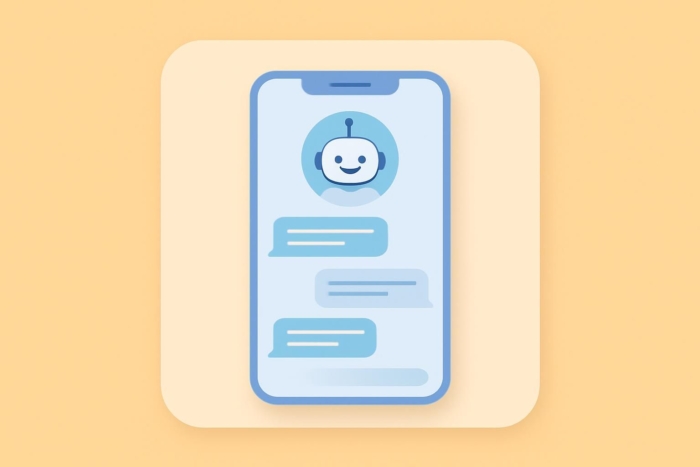
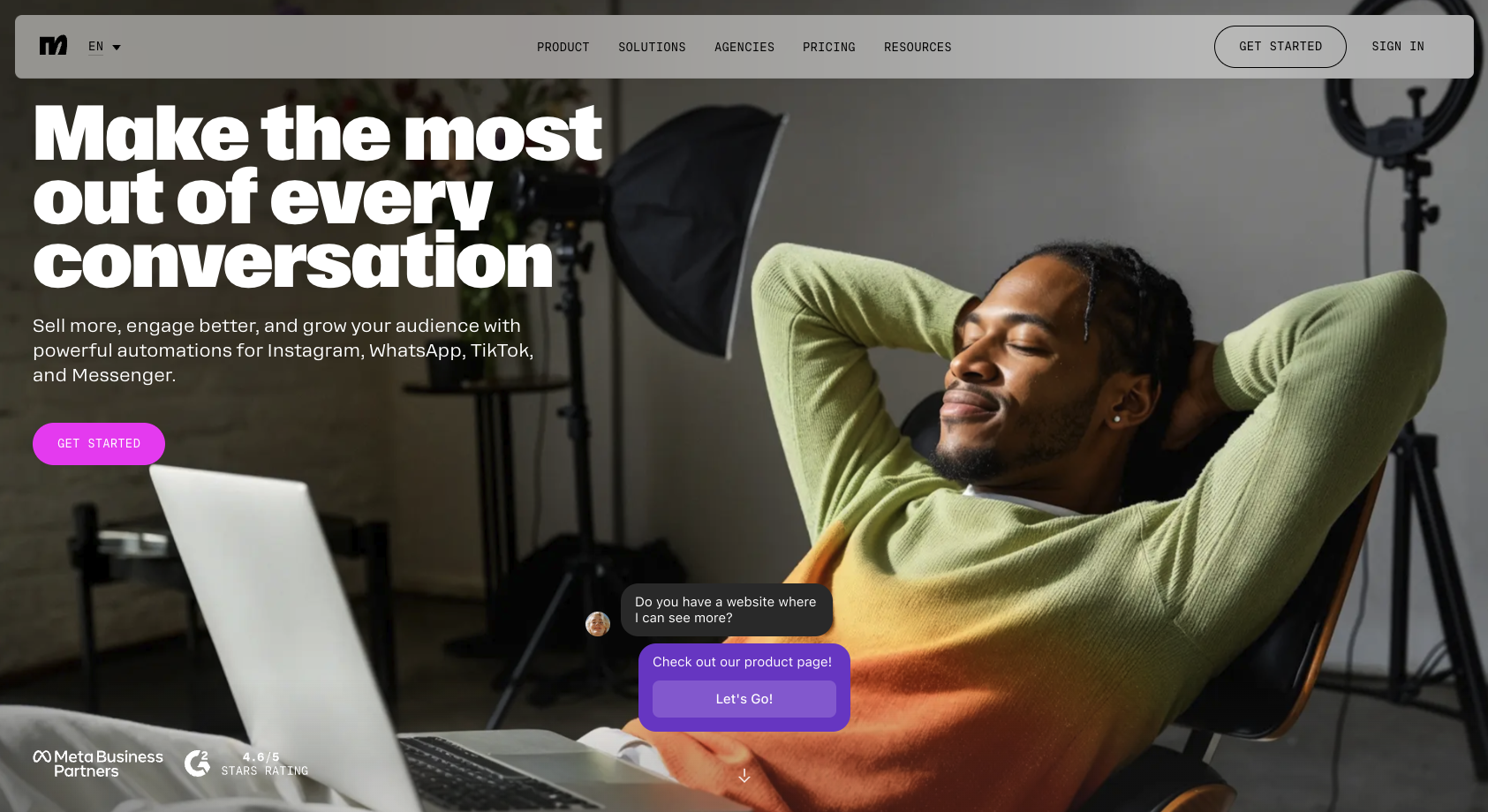
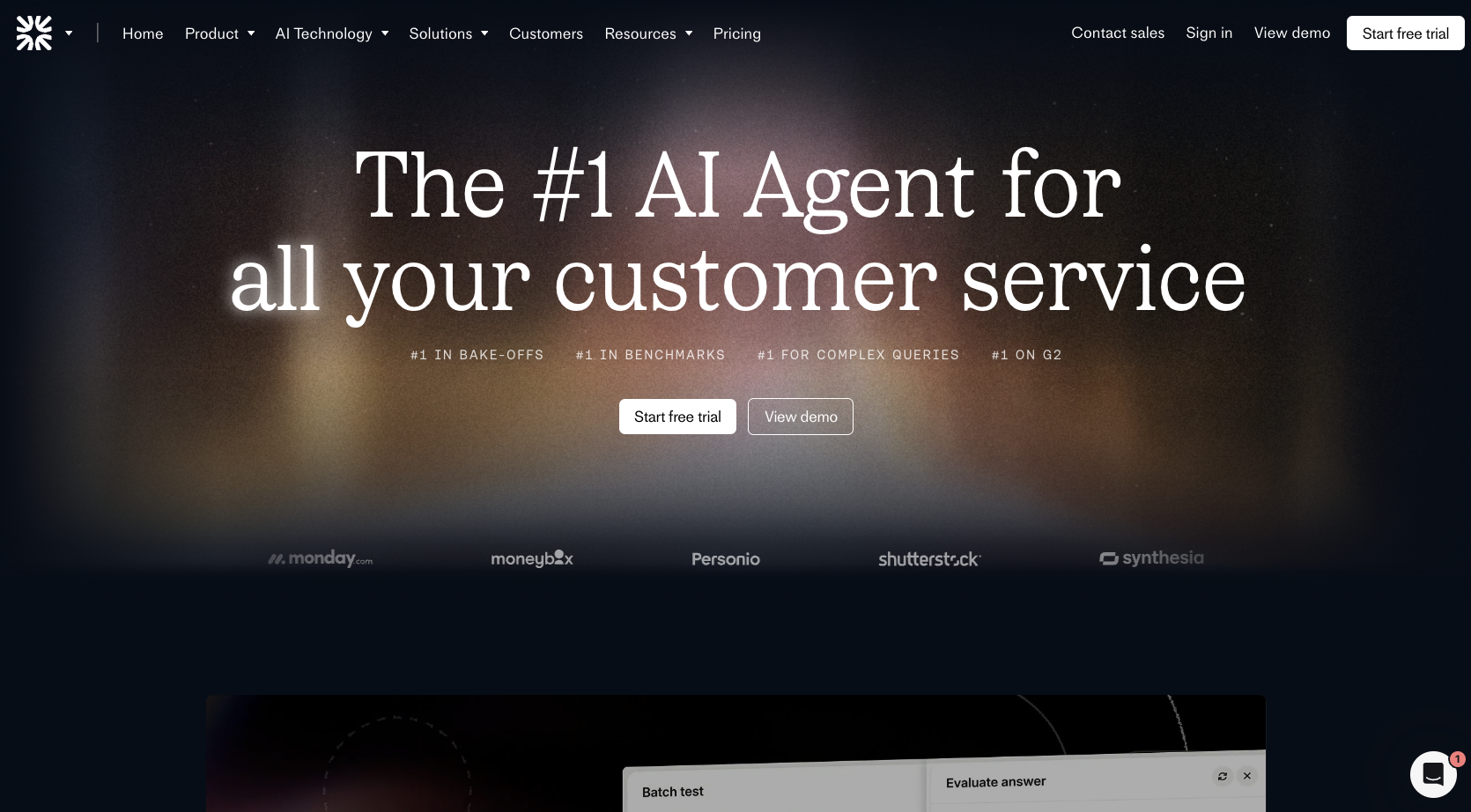
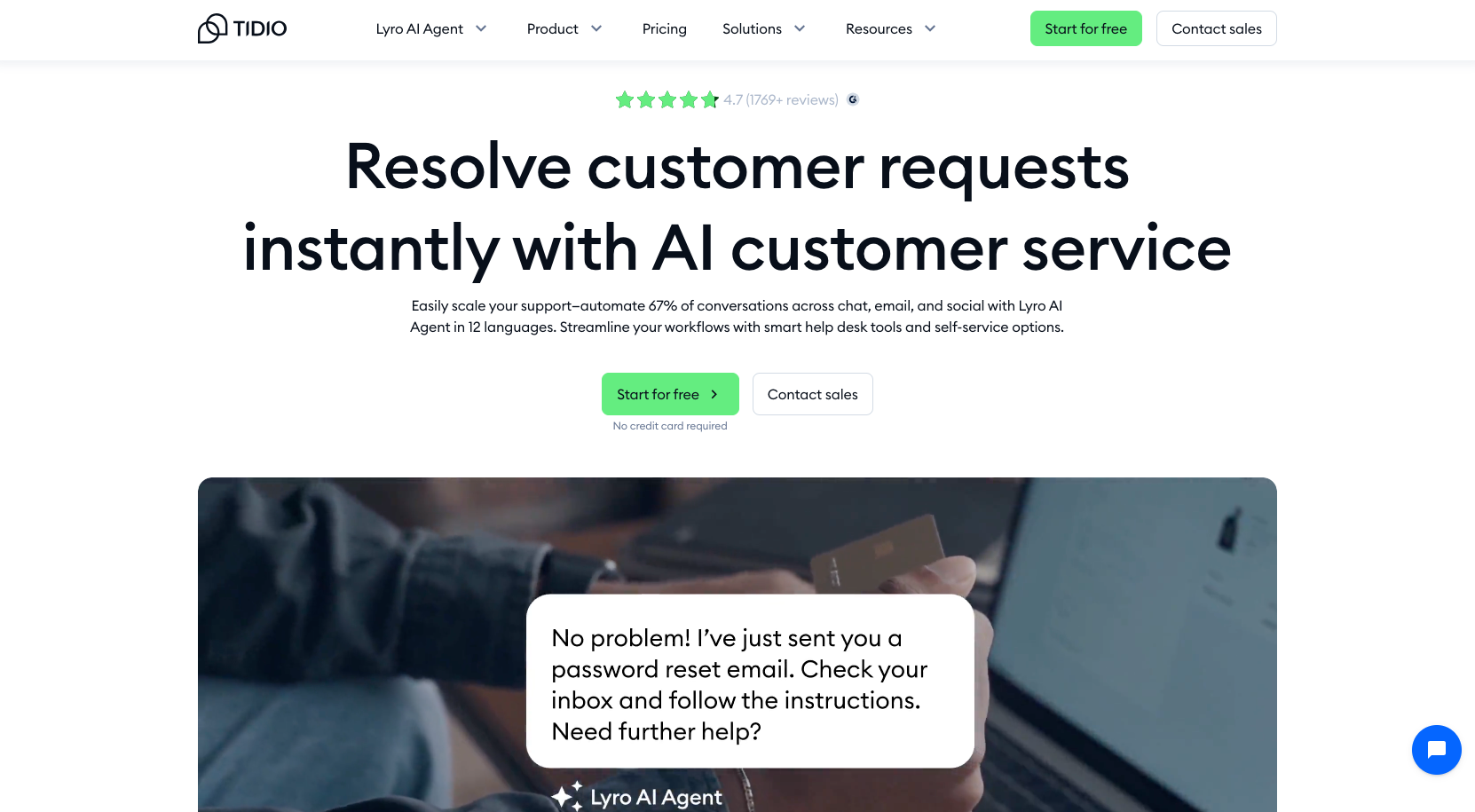
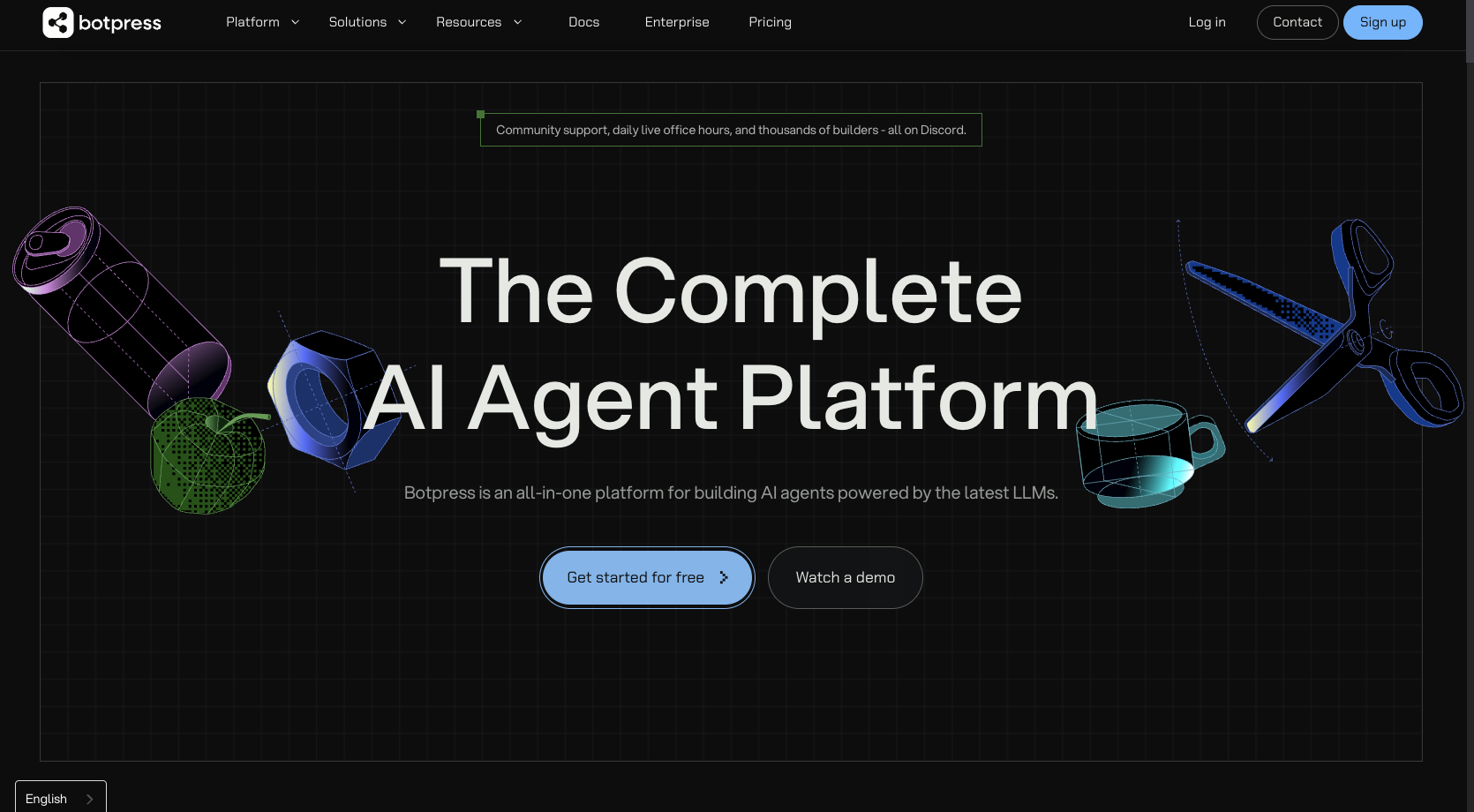
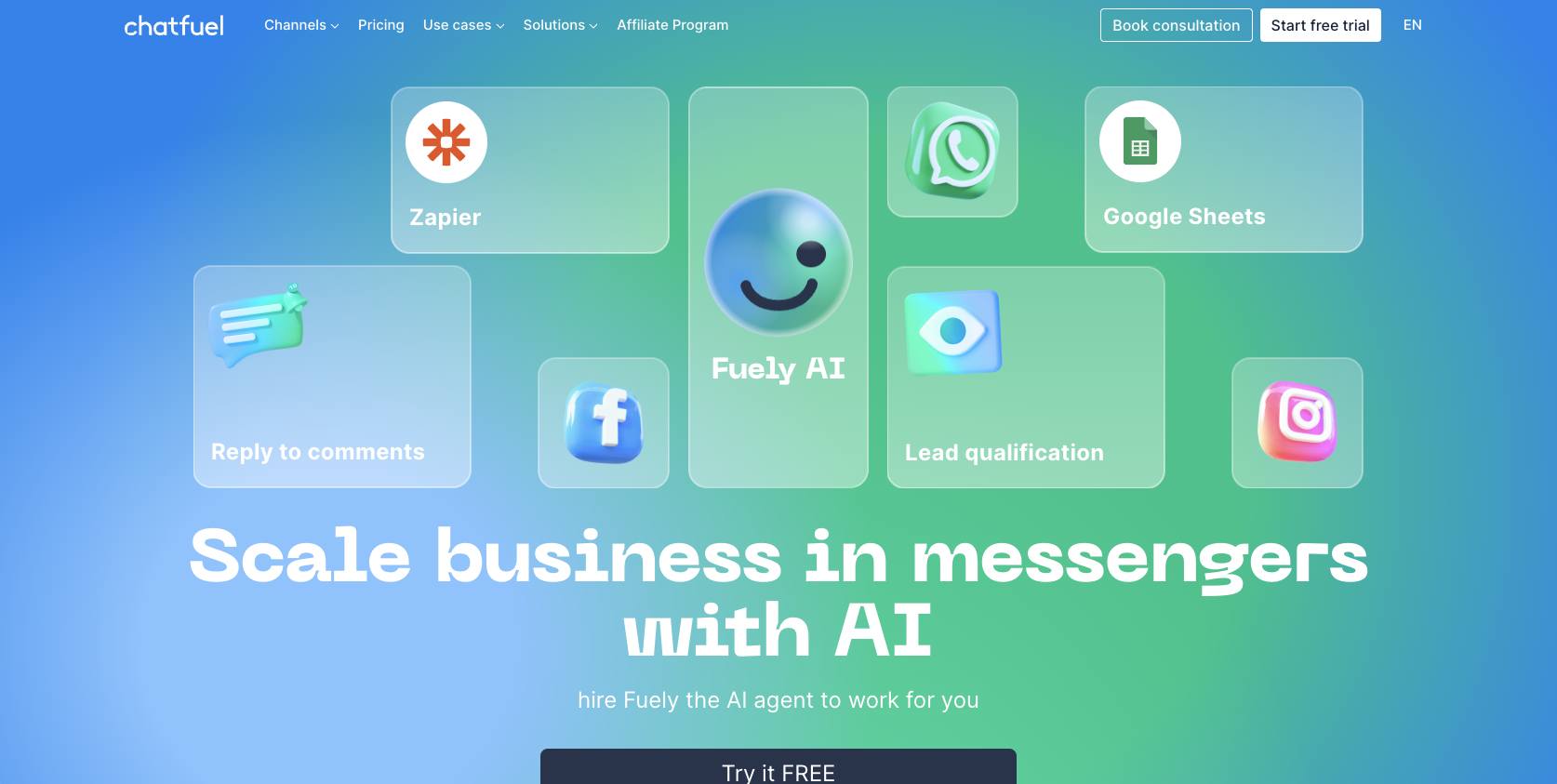
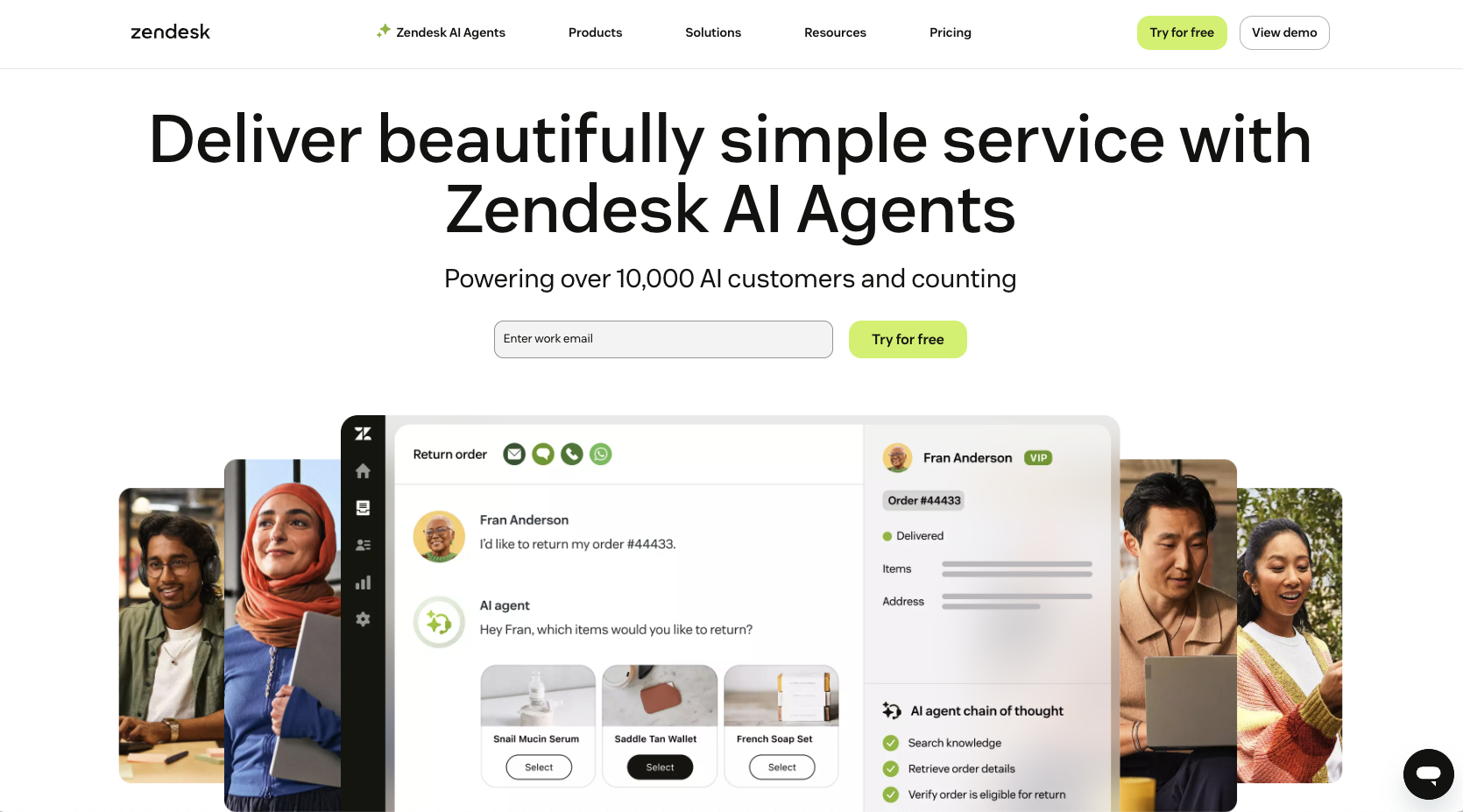
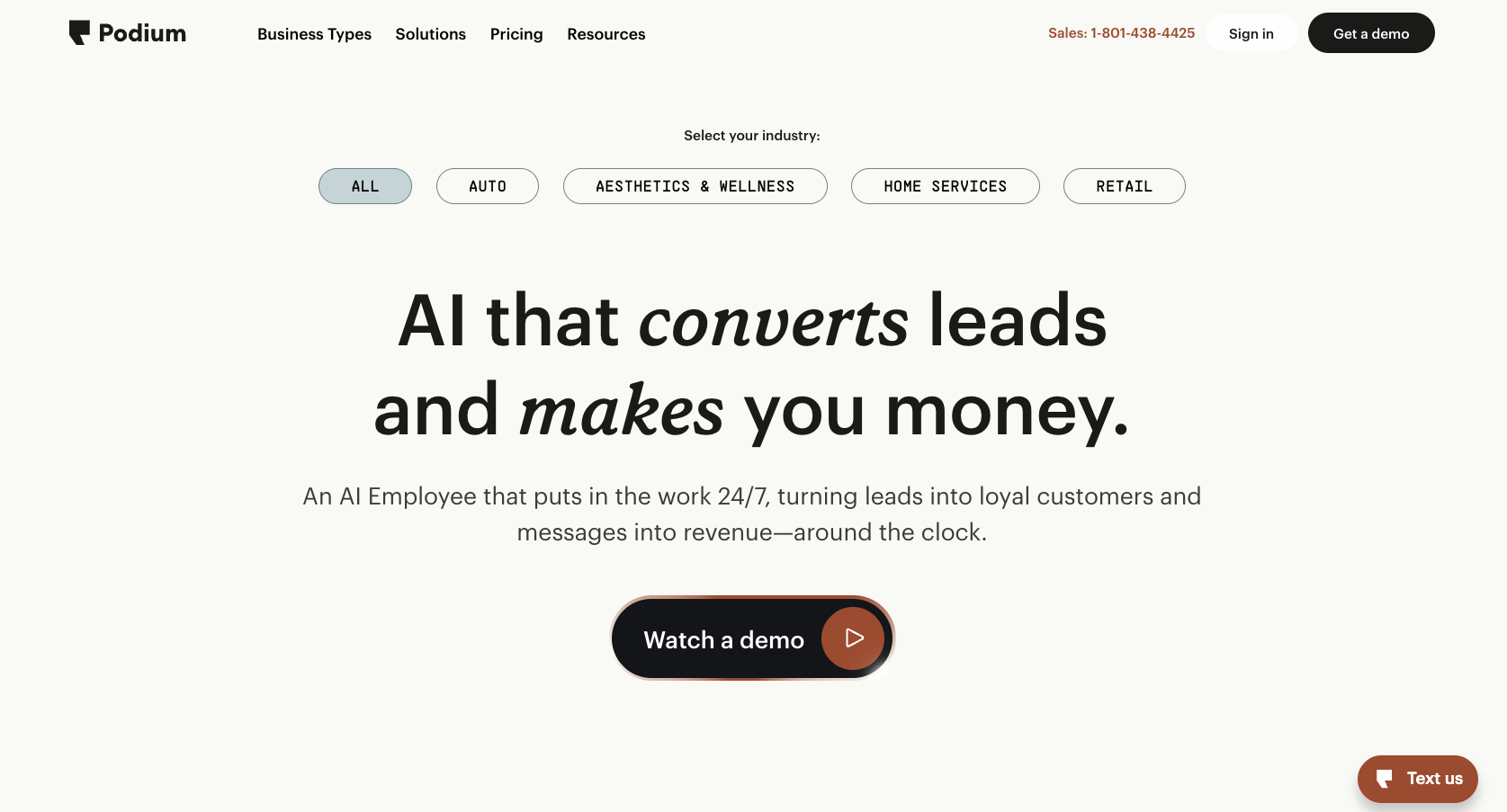
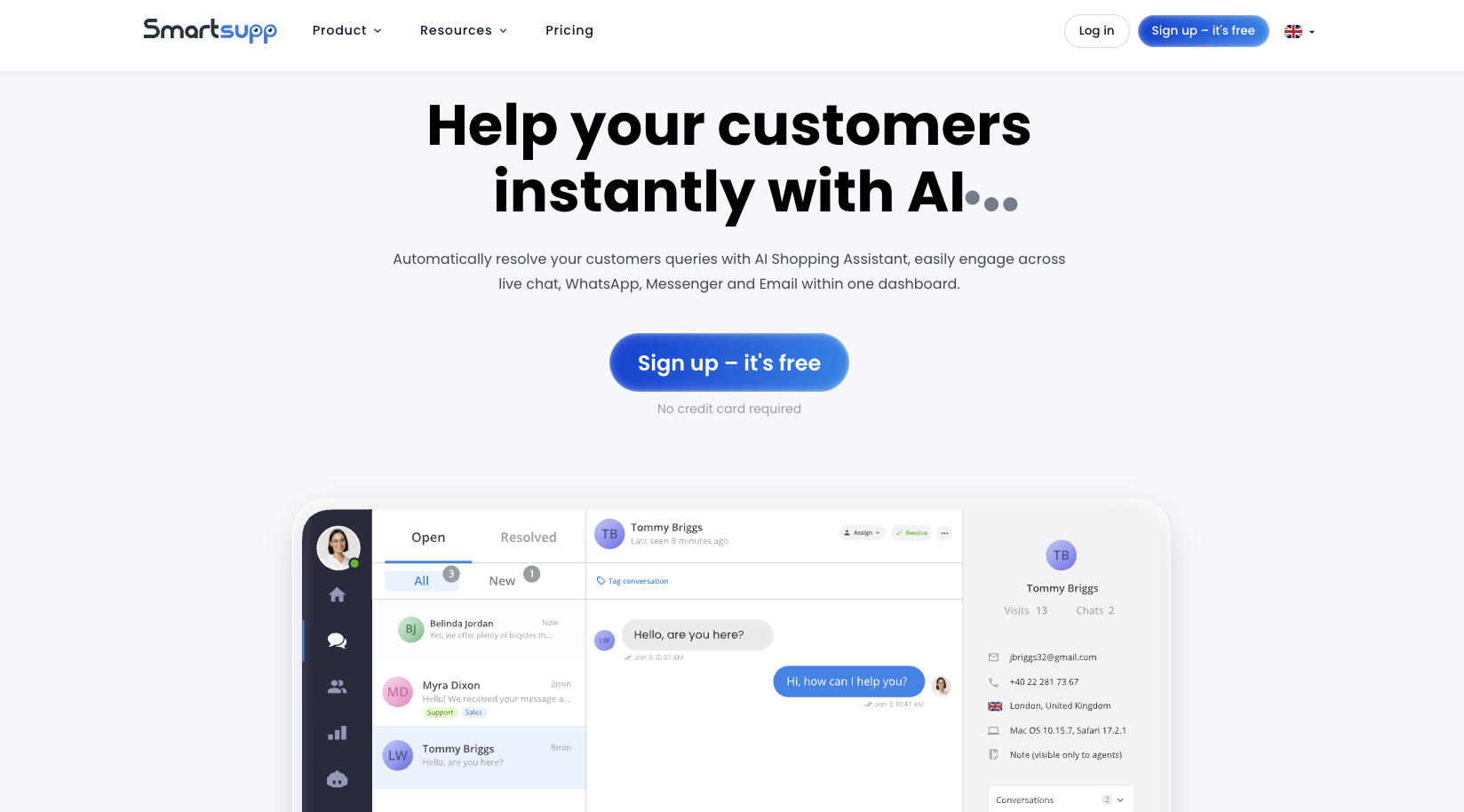
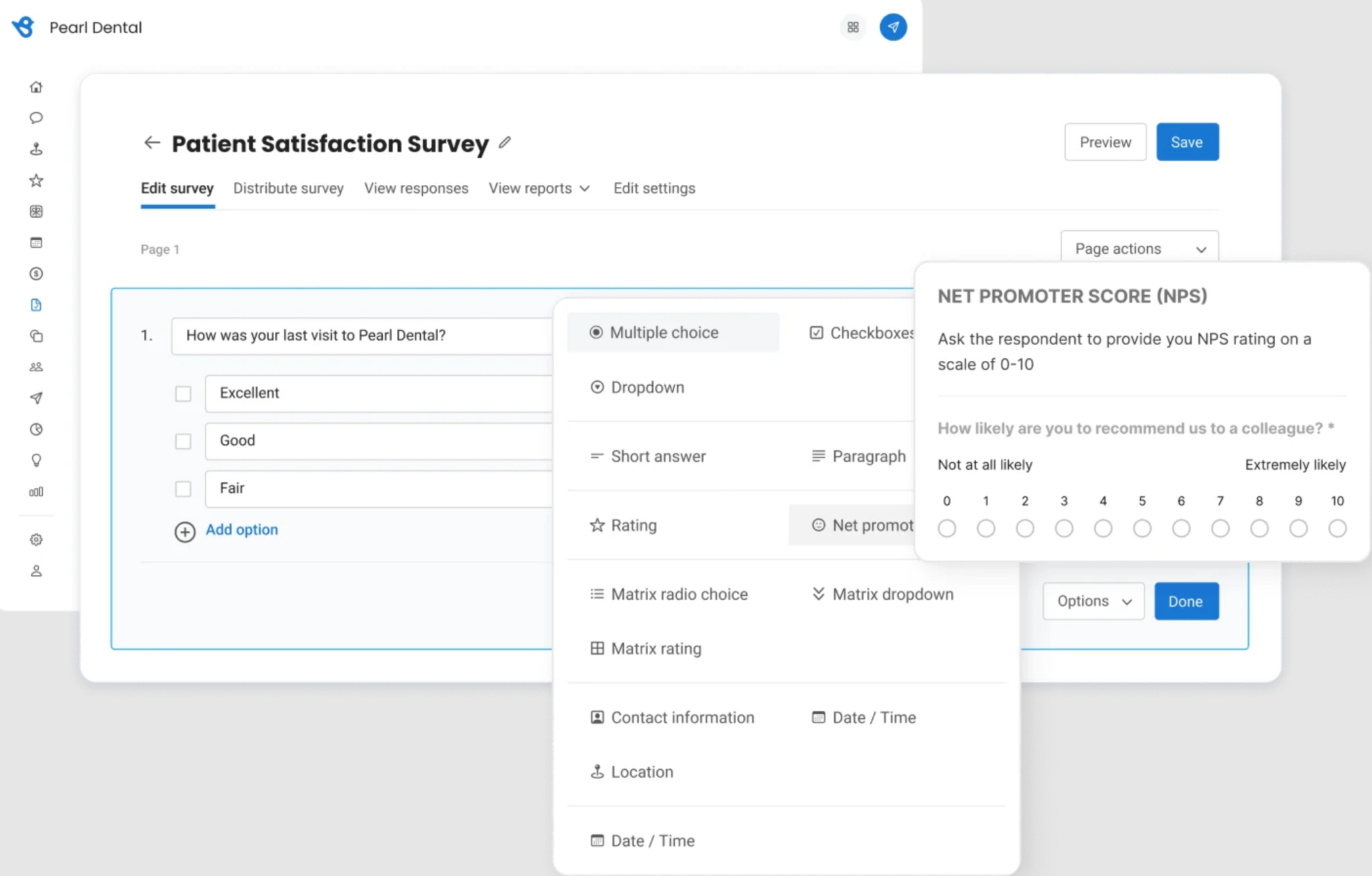








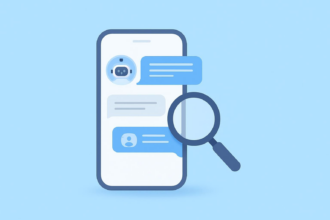

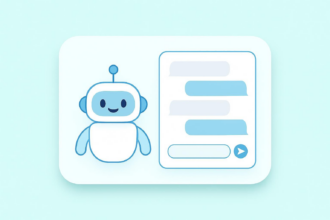
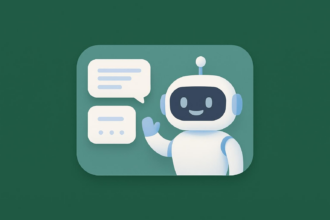
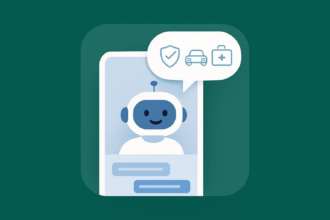
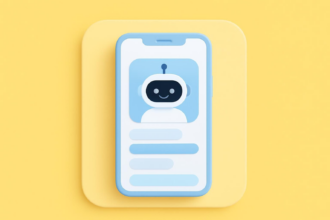



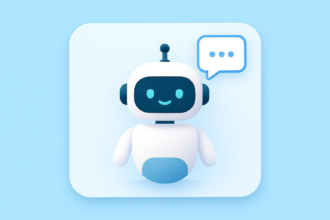
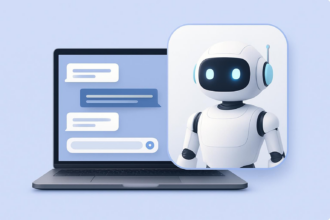
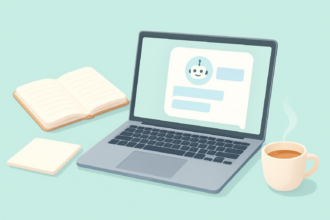
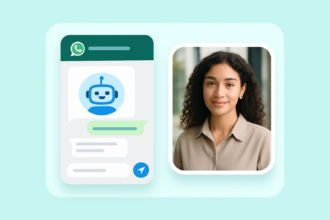
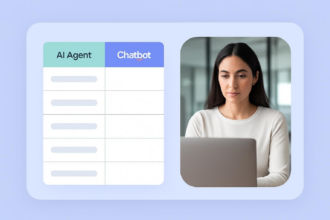
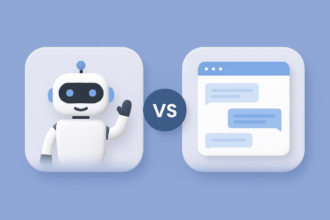




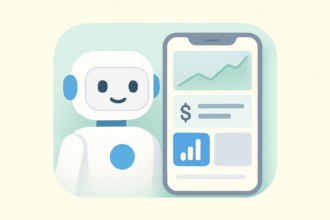

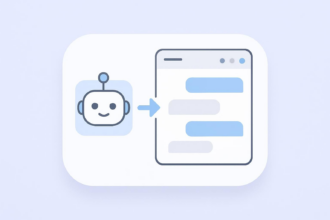

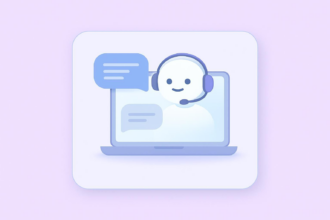

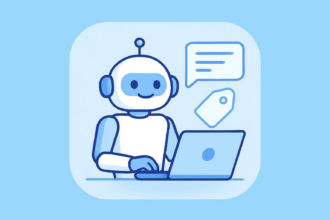


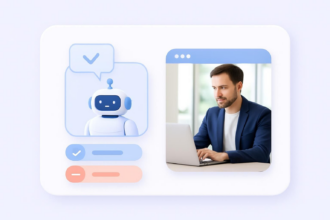

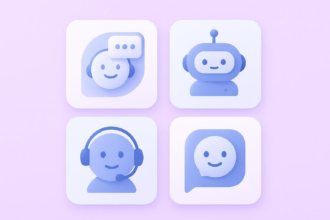





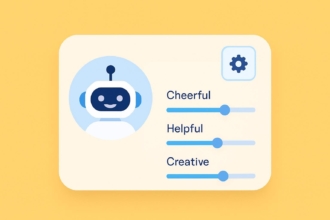

Send Comment: